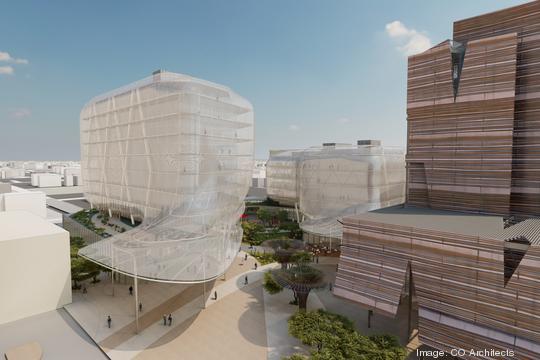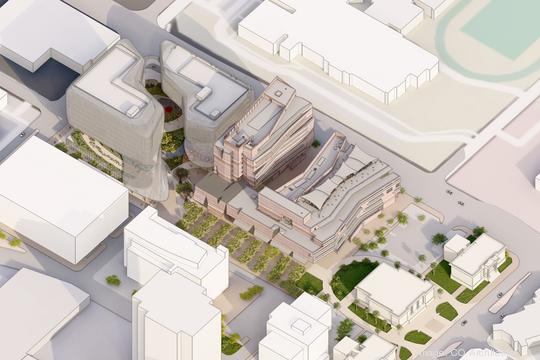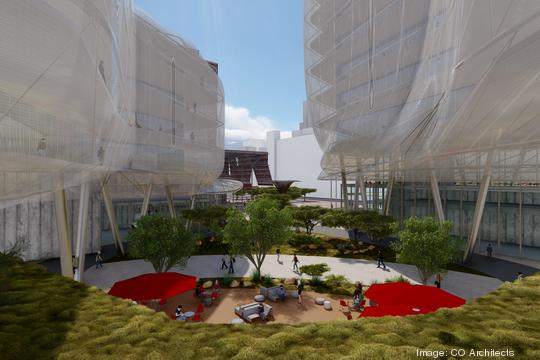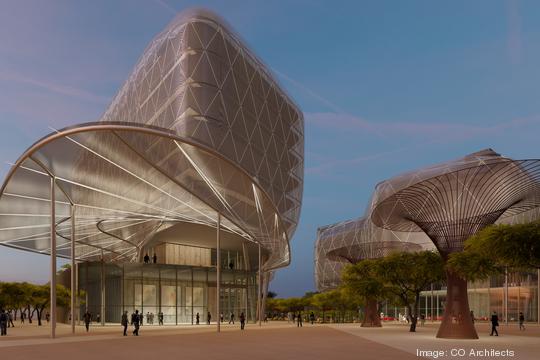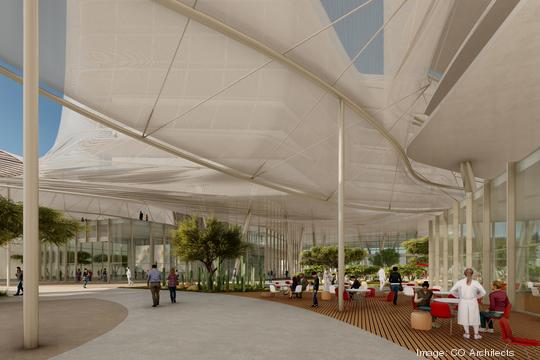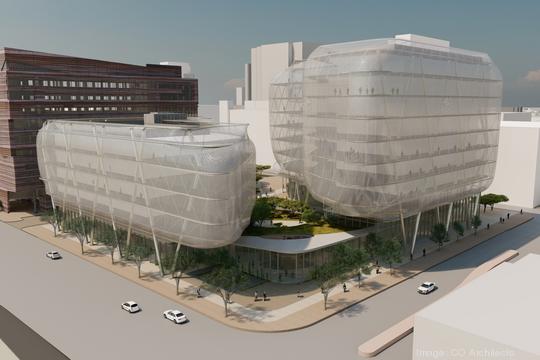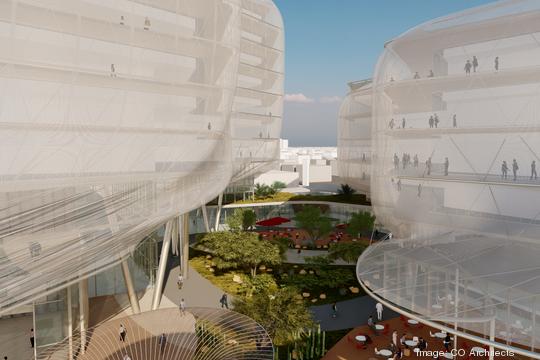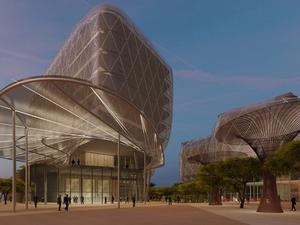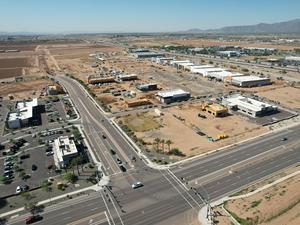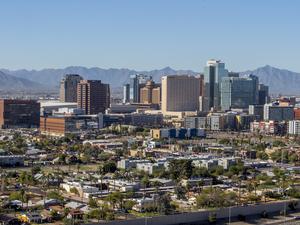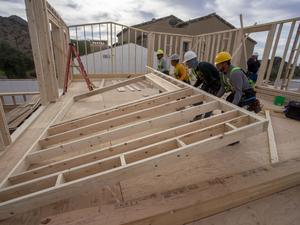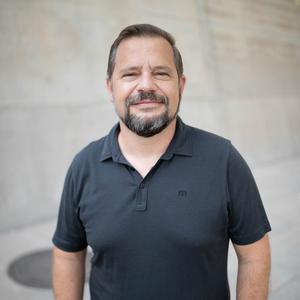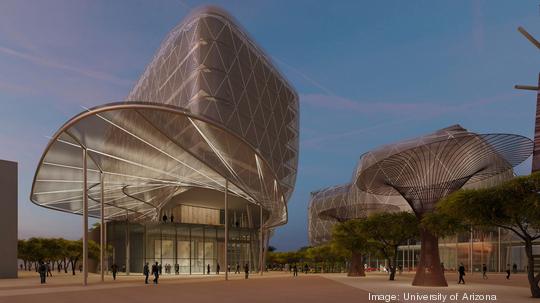
The University of Arizona Health Sciences' planned downtown Phoenix Center for Advanced Molecular and Immunological Therapies, or CAMI, is receiving two shots of significant funding that were announced Wednesday.
Arizona Gov. Doug Ducey has designated $150 million in new funding to the center, which will anchor the Phoenix Bioscience Core’s innovation district, and the Steele Foundation added $2 million in private support for the center’s research as part of a larger $10 million donation.
CAMI will be focused on cellular and gene-based therapy research connected with the immunology of cancers, autoimmune conditions and infectious diseases. At the center, UArizona is expected to work in close connection with Arizona State University, Northern Arizona University, the Mayo Clinic, the Translational Genomics Research Institute and others in the Bioscience Core — which itself is expected to foster corporate engagement and startup activity.
Click through the gallery below to see renderings of the proposed project.
UArizona Health Sciences CAMI renderings
"We are immensely thankful to Gov. Ducey and the Steele Foundation for their support of CAMI," said University of Arizona President Robert C. Robbins, MD, in a statement. "Immunotherapy is the future of medicine. With the generous financial support of the state, CAMI will allow the University of Arizona to remain on the forefront of medical research and meet the grand challenges of cancer, infectious diseases and autoimmune conditions by advancing our knowledge of the immunology of these serious health issues. The Steele Foundation has supported pediatrics research at the university for more than three decades, and this new significant gift allows for transformative progress in how we care for our kids, whose steps forward will mean everything to our future society and world."
UArizona Health Sciences first announced in April that it selected downtown Phoenix for the center, which will be built on the southwest corner of Seventh and Fillmore streets near the university’s medical school operations. The 293,000-square-foot structure will have 10 floors above ground and two floors below ground.
Ducey pointed to the immense economic impact that CAMI is expected to have for the state as a whole. UArizona said that economic impact estimates show a return on investment of 2.5-to-1 within 10 years, with CAMI attracting more than 150 companies to greater Phoenix and creating at least 7,500 new bioscience-related jobs and 13,000 supporting jobs.
"It is not often that an opportunity to benefit Arizonans in such diverse ways presents itself, as it has with CAMI," said Gov. Ducey in a statement. "As it grows, CAMI is poised to bring new jobs and businesses to Arizona, bolstering the economy not only in Maricopa County, but also across the state. More importantly, the research CAMI will advance and bring to fruition offers Arizona residents the hope of new treatments that will positively impact their health and well-being. My thanks to President Robbins and the University of Arizona for their dedication to building a healthier Arizona."
The Steele Foundation’s gift will go toward research into autoimmune diseases that affect children, such as Type 1 diabetes, juvenile arthritis, lupus, inflammatory bowel disease and celiac disease.
"The foundation is honored to be the first private philanthropic investment in CAMI," said Marianne Cracchiolo Mago, president and CEO of the Steele Foundation, in a statement. "We were inspired by the mission and how it will complement the incredible work at the Phoenix Bioscience Core. It's compelling to have pediatric and adult researchers collaborating under one roof and feels like a huge opportunity for CAMI to become a national model in research and discovery."
Dr. Michael D. Drake, senior vice president for UArizona Health Sciences, said there is rapid growth in investments into immunotherapy research and partnerships in the field between academic and industry players around the world.
"CAMI will open new doors of discovery and advance precision medicine to improve health and human potential for people across Arizona and around the world,” Drake said in a statement.
When it was first announced, UArizona said the new center will house 42 principal investigator-led research groups and 15 bioengineering research groups. It also will have space for UArizona's Office for Research Innovation and Impact, along with the academic research activities for a new biomedical engineering program.
CAMI is being developed under the guidance of an advisory council of more than 20 leaders from academic research, biomedical and health care industries, government organizations and corporations across Arizona.
